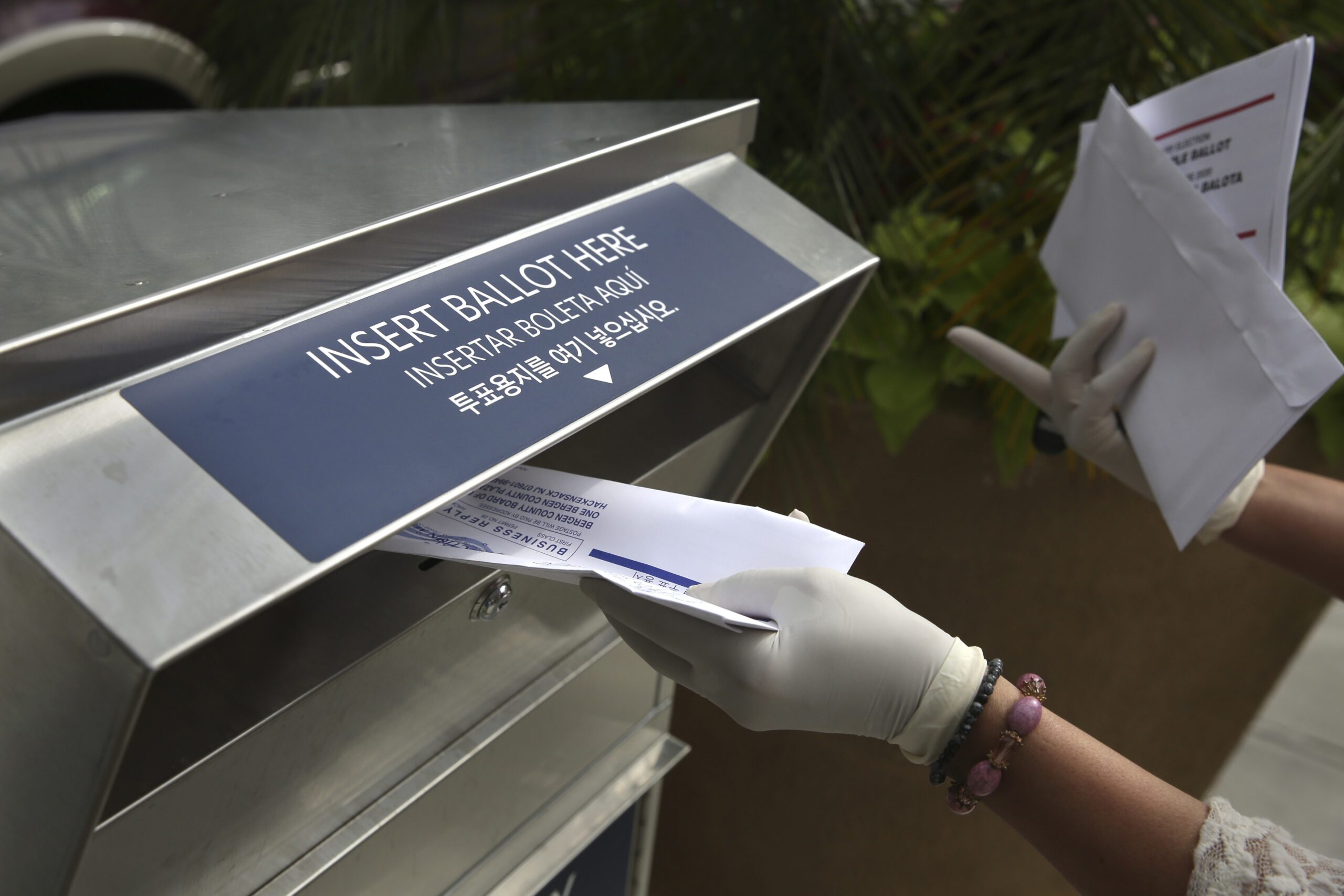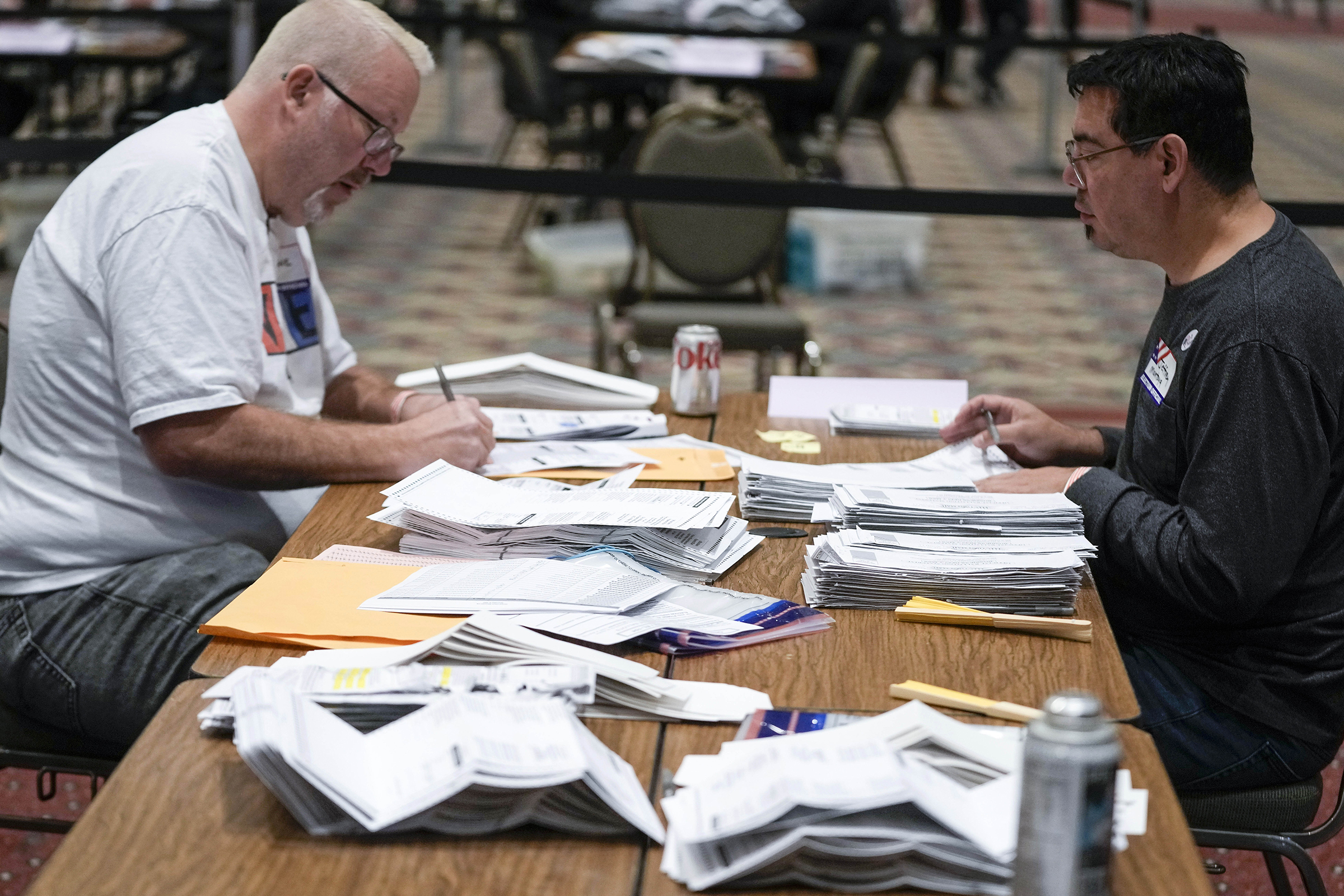Republicans have filed a motion to intervene in a lawsuit filed late last month by Democratic groups seeking to change Wisconsin’s absentee voting procedures.
The Elias Law Group, a Democratic law firm, filed the original lawsuit against the Wisconsin Elections Commission on July 20 on behalf of Priorities USA, a Democratic Party super PAC, as well as the Wisconsin Alliance for Retired Americans and a Dane County resident.
The suit seeks to overturn a Wisconsin Supreme Court decision from last year that barred the use of drop boxes for absentee ballots, and a separate decision by a Waukesha County judge barring election clerks from “curing,” or fixing problems on, absentee ballots. The lawsuit also seeks to end the requirement that absentee ballots must have a witness signature on the envelope.
News with a little more humanity
WPR’s “Wisconsin Today” newsletter keeps you connected to the state you love without feeling overwhelmed. No paywall. No agenda. No corporate filter.
Democrats argue these restrictions on absentee voting restricts access for everyone, but especially older people and people with disabilities.
In the new motion, filed Tuesday, the Republican National Committee, the Republican Party of Wisconsin and GOP chapters in Rock and Walworth counties seek to join as defendants with the Wisconsin Elections Commission in the Democratic-filed lawsuit.
“Early voting, absentee voting is something the RNC is very much coming to embrace, but there have to be appropriate safeguards in place,” said Gates McGavick, director of legal communications for the Republican National Committee. “The issue with this lawsuit is it tries to get rid of some of those safeguards.”
The GOP groups argue the court cases at issue were determined correctly, and that changing voting rules this close to the 2024 election will harm the process and target Republican voters especially.
“They’re trying to sue over settled law from last year. And we are asking that the law is upheld instead of changed,” said McGavick.
Republicans “are already well underway in developing their political and campaign strategies for the upcoming election, including for its absentee get-out-the-vote efforts which, for example, do not contemplate the usage of absentee ballot drop boxes,” the motion reads. “These changes could also confuse voters and undermine confidence in the electoral process, potentially making it less likely that (Republican) voters will vote.”
A representative from Priorities USA declined to comment. In a press release accompanying the initial lawsuit, the group said Wisconsin’s absentee ballot restrictions are “voter suppression.”
“We hope this legal effort will bring relief to Wisconsin voters while expanding access to the ballot for every eligible voter in the state,” said Aneesa McMillan, Priorities USA’s deputy executive director, in a statement.
The Democratic-backed lawsuit claims “the Legislature has improperly erected multiple barriers to absentee voting that make it unnecessarily difficult for many Wisconsin electors to cast ballots and that disenfranchise many qualified voters based on mere technical violations of unnecessary rules.”
The lawsuit was filed shortly before Janet Protasiewicz was sworn onto the Wisconsin Supreme Court, flipping the ideological balance to a 4-3 liberal majority. The court that determined the dropbox case last summer had a 4-3 conservative majority, and voted 4-3 in the case.
Absentee voting practices have come under tremendous scrutiny since the 2020 election. While some of these practices, including the use of drop boxes, had been in widespread use for years, there was a significant influx of mail-in ballots during the height of the COVID-19 pandemic.
That exposed challenges with existing practices around curing problems and gathering witness signatures on absentee envelopes. Republican former President Donald Trump and his allies also targeted absentee voting in baseless accusations that the 2020 election had been stolen from him. While the Wisconsin Elections Commission has since developed procedural recommendations for future elections, multiple state and federal court decisions and a nonpartisan audit have found no evidence of widespread fraud.
Wisconsin Public Radio, © Copyright 2025, Board of Regents of the University of Wisconsin System and Wisconsin Educational Communications Board.







